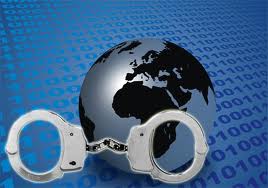Cybercrime Law forum on IRR barely tackles libel aspect, focuses on cyberbullying

Work on the draft of the Cybercrime Act of 2012 Implementing Rules and Regulations proceeded Tuesday in public consultations during which libel sidelined by other issues like cyberbullying and hacking.
In its February 18 ruling, the Supreme Court upheld the constitutionality of online libel “with respect to the original author of the post but unconstitutional only where it penalizes those who simply receive the post or react to it.”
The three-and-a-half-hour forum is the first of a three-part consultation with the public sector this April before the IRR’s official launch on May 16. It involved non-government organizations, businesses, and the academe.
Department of Justice (DOJ) Assistant Secretary Geronimo Sy said the IRR is meant to become a “user manual” for complainants, lawyers, and day-to-day law enforcers.
“Libel was hardly mentioned because people start to realize that the whole Cybercrime Prevention Act, libel is just a small part of it. The big issues are hacking, theft of identity… there’s a host of issues surfacing and libel is just a part of it,” Sy said.
At the forum were representatives from the National Bureau of Investigation, the Department of Science and Technology – Information and Communications Technology Office, the Philippine Internet Freedom Alliance (PIFA), University of the Philippines – Diliman, the International Justice Mission (IJM), BDO-ARMCI Solutions & Consultancy, Inc., and Laggui & Associates, Inc.
Among the first suggestions raised was the deletion of the clause on cyberbullying. In Section 3 of the IRR draft, ‘bullying’ was defined as the “unlawful or prohibited acts defied and punishable by Republic Act No. 10627 or the Anti-Bullying Act of 2013”.
Section 5 of the IRR draft also said that the penalty to be imposed shall be one degree higher than that provided for in the Anti-Bullying Act.
PIFA representative Atty. Marlon Tonson suggested the deletion of both provisions since bullying under the Anti-Bullying Act of 2013 was not defined as a criminal offense. Cases of bullying were not meant to be brought to court.
“Hanggang principal’s office lang iyon, hindi sa court dadalhin,” Tonson said in an interview with GMA News Online on the sidelines.
“Bullying is harmful, but it’s very subjective. Online libel will be difficult to prosecute, but this one will be more difficult,” said Angel T. Redoble, President and CEO of BDO ARMCI Solutions & Consultancy, Inc.
Sy suggested totally removing the provision but batted for the crafting of a paragraph that explains what cyberbullying under the Anti-Bullying Act means, so that day-to-day implementation will be easier by “freeing front line offices with all their questions on cyberbullying”.
The definition of internet service providers was also clarified. ISPs will play a crucial role in cybercrime investigation since they are required to preserve and retain computer data, and disclose them to law enforcement agencies, upon the latter securing a court warrant.
Aside from telecommunications giants, Internet cafes, Wifi zones, and piso-net connections are also classified as ISPs. However, each will have a different set of required rules and responsibilities. What exactly they are has yet to be written.
“We’re doing a legal review based on the comments, double-checking the facts, double-checking the law. and then probably during the consultations during the month of April, we will be able to see a better direction on how to handle cyberbullying and different classes of ISPs,” Sy said.
The second consultation meeting will involve the national government agencies and the members of the legal profession, while the third meeting will involve ISPs, Information and Communication Technology associations and the media. Each will happen on the next Tuesdays this month.
Sy said that the DOJ-Office of Cybercrime is also considering inviting embassies, consuls, international organizations, in order to hear about best practices on cybercrime law implementation in other countries and make our own “globally the best”.
“We do not see this as a one time series of consultations. The dialog with society in general, with specific stake holders in particular, will always be a DOJ Office of Cybercrime approach. There are so many issues, the least (we) can do is to be in constant communication,” Sy said.
Sourse: gmanetwork.com
Comments close